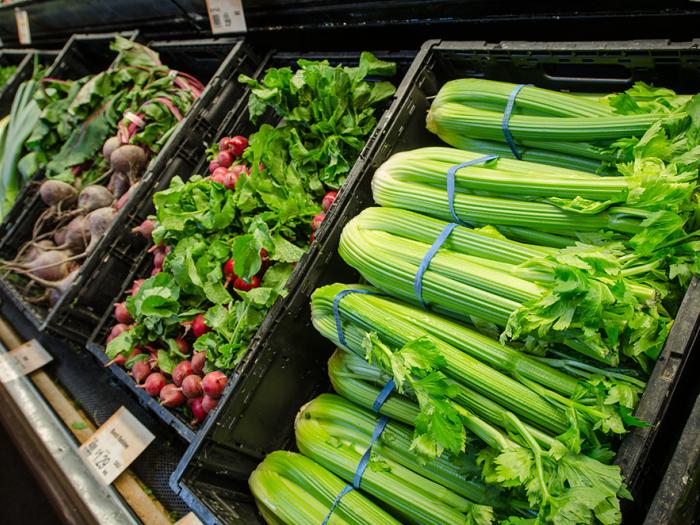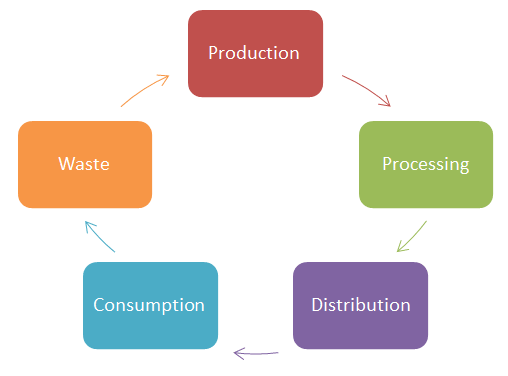
Food System Policy Program
Project Status: Completed
Our Food System Policy Program is a collaborative effort with other public agencies, businesses, non-profits, and community members to understand and improve San Francisco's urban food system. Our ultimate goal is to help create a sustainable urban food system that helps the City and County of San Francisco better serve the residents and businesses that are dependent on it for their livelihood and health.
What is the SF Planning Department's Food System Policy Program?
- Equitable – Affordable – Accessible
- Health Promoting
- Community Building
- Environmentally Conscious
- Economically Balanced
- Sustainable and Resilient
- Transparent and Safe
What is an Urban Food System?
 An urban food system is comprised of all the elements required to produce, process, distribute, consume and recycle food and food stuffs.
An urban food system is comprised of all the elements required to produce, process, distribute, consume and recycle food and food stuffs.
For San Francisco, this includes farms in neighboring counties as well as community and backyard gardens; artisan food and beverage producers, commercial kitchens and incubators; wholesale distributors of produce, grains and meats; restaurants and caterers; food markets and pantries; and, to be sustainable, the composting and re-cycling of food wastes back to food production sites. The functioning of the food system is influenced by market forces, regulatory environment, and the broader social trends and political climate of the day.
What Does this Mean to You?
Given the innate human need to eat, we are all participants, whether active or unaware, in the food system. And, our relationship with food and the manner in which we grow, access and consume our food is of increasing interest given the: (1) recognized impacts of agriculture and the food industry on climate change and our environmental resources, (2) the significant potential for food-related businesses to spur local economic development, (3) the opportunities for localized food production, at various scales, to build cohesive communities, (4) and the prevailing public health maladies from an industrial diet, lifestyle and allocation system. In the face of multiple challenges within our current food system, there are just as many opportunities to improve efficiencies and outcomes.
Additional Resources
- Board of Supervisors Food Security Task Force
- Webinar recording (8/2/13): Roadmap for City Food Sector Innovation and Investment video
- North American Food Sector Scan Part 1: Program Scan and Literature Review
- North American Food Sector Scan Part 2: Roadmap for City Food Sector Innovation and Investment
- Roadmap Investment Evaluation Tool (Excel file)
- San Francisco Urban Agriculture Ordinance
- San Francisco Urban Agriculture Program
- Executive Directive for Healthy and Sustainable Food for San Francisco
- Summary Report - Dec 2010
- Mobile Food Facilities Locational Requirements
- Mobile Food Facilities at Certain Institutions in Specified Districts
